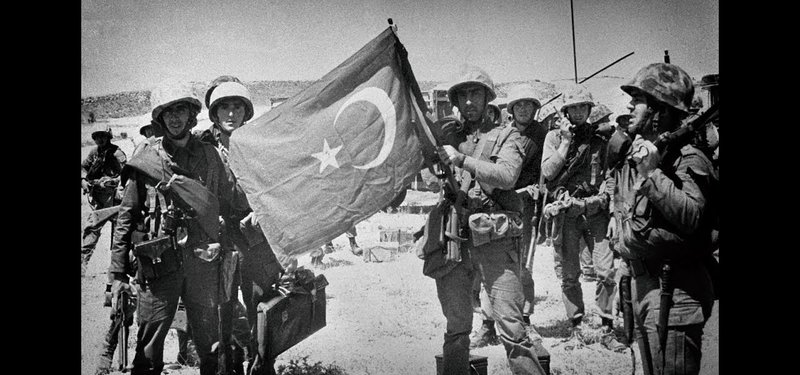
Northern Cyprus marks 44th anniversary of peace op
- Türkiye
- Anadolu Agency
- Published Date: 12:00 | 19 July 2018
- Modified Date: 04:05 | 19 July 2018
It has been 44 years when the Turkish Armed Forces (TSK) launched Cyprus Peace Operation to end the Greek side's oppression and cruelty and to protect the lives and liberty of the island's Turkish community.
The operation launched in 1974 under the code-phrase "Ayşe Tatile Çıksın" (Ayşe should go on vacation) stopped the bloodshed on the island.
Violence broke out amid a Greek Cypriot attempt to forcibly unite Cyprus with Greece, which was then ruled by a military junta. Turkey sent 40,000 troops -- Cyprus Peace Operation -- to the island's north.
The developments that set the stage for the Cyprus Peace Operation began in 1959 when the London and Zurich Agreements were signed between Turkey, Greece and the United Kingdom for the constitution of the Republic of Cyprus on the basis of equality of rights.
However, the Turkish Cypriots, who had been attacked since 1963 by the Greek Cypriot armed groups, were removed from the state administration by pressure and oppression.
The attacks and embargoes carried out against the Turkish community by the Greeks, who wanted to give the administration of the island to Greece, increased between 1963-1974.
Atrocities against Turkish community
Ultra-nationalist and anti-Turkish Nikos Sampson, one of the leaders of EOKA B -- a Greek Cypriot paramilitary organization formed in 1971 -- overthrew then-President Makarios on July 15, 1974 with the support of the Greek military junta of that period.
When the news of the coup arrived in Ankara, the National Security Council was convened. Turkey's then Prime Minister Bülent Ecevit instructed the TSK to prepare for a possible operation in Cyprus.
World public opinion in response to the military government of Cyprus would also create an environment in favor of Turkey.
On July 20, 1974, Ecevit announced the start of the operation, which he said, "will have a great contribution to mankind and peace".
The operation ended on July 22 after a call from the United Nations Security Council. Later, the U.S. and the U.K. authorities brokered a cease-fire between Turkey and Greece.
With the operation, the Lefkoşa-Girne highway was taken under control and the connection of the Turkish part of Lefkoşa to the sea was ensured. Apart from this, in the other settlement areas, especially in Magosa (Famagusta), the security of the Turks was not fully ensured.
On July 22, Greece-backed Nikos Sampson resigned from his post while the operation left 57 soldiers martyred and 184 others injured.
Geneva talks
Cyprus peace talks began in Geneva on July 25, 1974, following the collapse of the Greek military junta on July 23, 1974 mainly due to the events in Cyprus.
Talks in Geneva ended on July 30.
Although the parties wished the continuation of the cease-fire, Greek Cypriot forces launched an attack in the western part of Girne (Kyrenia) on Aug. 6.
The sides met for the second time in Geneva to discuss the terms of the peace. The then Turkish Cypriot Leader Rauf Denktaş and the Greek Cypriot Leader Glafcos Clerides attended the talks.
The delegation representing the Turkish Cypriots stated that the island needed a new constitution and a federation system should be established and 34 percent of the territory should be left to the Turkish side.
After the Greek Cypriots and Greece rejected the demands of the Turkish side, the conference ended without any result.
Still no solution
On Aug. 14, 1974, Turkey launched a second operation to save the regions from the Greek occupation. During the operation, a number of mass graves of Turkish civilians were found in Turkish towns.
In September, the sides exchanged the prisoners on Green Line -- a cease-fire line which separates the two communities on the island.
Following the success of the operation, Turkish Federated State of Cyprus was established on Feb. 13, 1975 and Rauf Denktaş was elected as the president.
On Nov. 15, 1983, the Turkish Republic of Northern Cyprus (TRNC) was established.
However, the island is still waiting for the solution. The UN has sought a peace deal to unite Cyprus under a federal umbrella that could also define the future of Europe's relations with Turkey, a key player in the conflict.
But the latest attempt to reunify the long-divided Mediterranean island ended in failure in 2017 after two years of negotiations.

